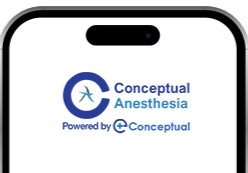
Estimated reading time: 4 minutes
For every young doctor standing at the crossroads after MBBS or during their medicine residency, there’s one constant thought: What’s next?
If you’ve ever dreamt of practising emergency medicine in the UK or any part of the world with high clinical standards, the FRCEM exam might be your golden ticket.
Let’s learn about everything you need to know, from scratch to end, what the FRCEM is to why it matters, and how to prepare for it smartly.
What is FRCEM? Let’s Break It Down
FRCEM stands for Fellowship of the Royal College of Emergency Medicine, a reputable postgraduate qualification which is offered by the Royal College of Emergency Medicine (RCEM), UK.
You know what, this is a clinical and academic benchmark that illustrates your ability to handle emergencies with clarity, skill, and confidence.
Whether you’re in the middle of your medicine residency or already planning your career roadmap abroad, FRCEM could open international doors.
Who Should Appear for the FRCEM Exam?
Think of it as the path for:
- Medical residents in Emergency or Acute Medicine.
- Doctors aiming for super-speciality training in Emergency Medicine.
- International medical graduates (IMGs) wanting to work in the NHS (UK).
- Aspirants preparing for medical entrance exams that are globally recognised.
If you’re passionate about making fast, life-saving decisions and managing trauma, FRCEM isn’t just a qualification; it’s a mission.
FRCEM Exam Structure: What to Expect?
The FRCEM exam isn’t just one test; it’s a series of episodes that check your overall clinical knowledge, decision-making, and practical application.
Here’s how it’s typically divided:
| Stage | What It Tests |
| FRCEM Primary | Basic sciences relevant to Emergency Medicine |
| FRCEM Intermediate | Clinical short answer questions |
| FRCEM Final | Critical appraisal, management, and OSCE-style exams |
Each stage has its charm and its unique challenges.
Why FRCEM? The Global Value It Holds
Let’s be real, FRCEM is not just about passing a test. It’s about entering a global community of trained emergency physicians.
Here’s why the FRCEM is a game-changer:
- Global Recognition: This is highly respected in the UK, the Middle East, Singapore, Ireland, and other Commonwealth countries.
- Career Opportunities: There is a strong pathway to NHS jobs, UK training posts, and senior clinical roles. Where residents can train themselves.
- Academic Value: This could be your stepping stone to become a trainer, researcher, or even build academic institutions by your own.
- Practical Relevance: where you don’t have a clue about medicine, but you know how to save lives under pressure.
How Long Does It Take to Prepare?
This depends on your clinical exposure, reading habits, and work schedule. But here’s a rough idea:
| Stage | Suggested Prep Time |
| FRCEM Primary | 4–6 months of structured prep |
| FRCEM Intermediate | 3–4 months with daily case work |
| FRCEM Final | 4–6 months with OSCE practice |
If you’re balancing it with a medicine residency program, the timeline may stretch, but maintaining consistency is more important than intensity.
Real Talk: Is FRCEM Hard?
It’s challenging, yes, but that’s because it’s meant to shape experts, not just pass candidates. You’ll need:
- Clinical thinking
- Fast decision-making
- Emotional intelligence
- Adaptability in high-pressure settings
You know, there are thousands of medical aspirants and medical residents across the world who take this journey, with the right guidance, community, and mindset.
Final Thoughts:
Nowadays, where medical careers are becoming both global and competitive and harsh, FRCEM is not just an exam; it’s a pure and proper professional transformation of residents. FRCEM might just be your calling.
Whether you’re still in MBBS, pursuing your medicine residency, or a practising doctor looking for the next leap, now is the best time to understand, prepare, and conquer the FRCEM.










